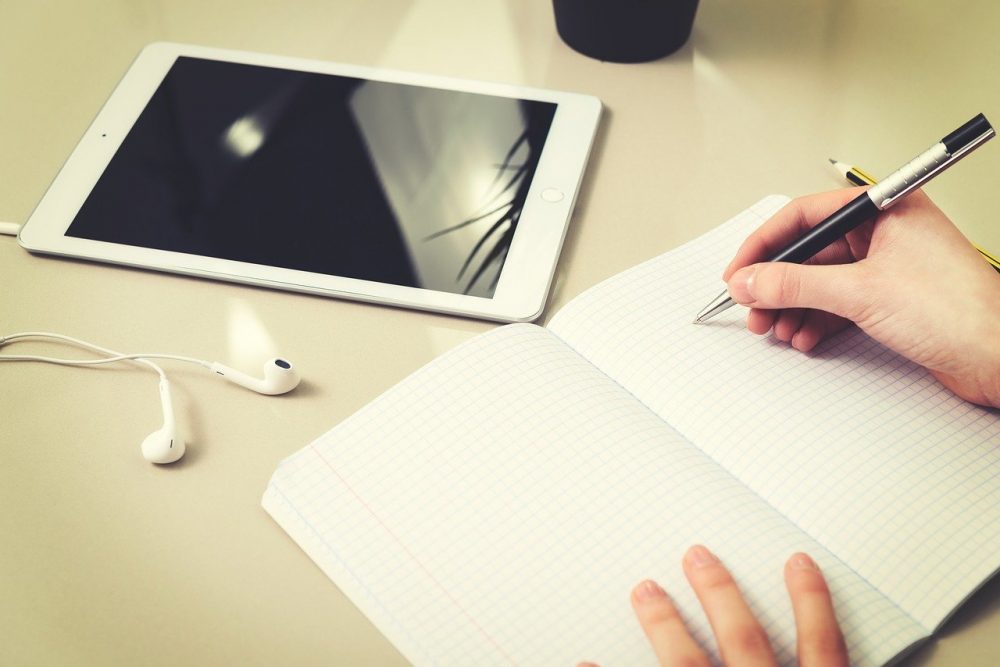When is the Best Time to Study? Efficient Methods and Tips

Parents who encourage their kids to study know how arduous it is to learn. Teachers who motivate their students to study also find it hard to help them discover the best time to study and memorize. It’s not rocket science; studying is pragmatic.
The best time to study for your brain is sometimes unpredictable. While sometimes it is best to study first thing in the morning, other people say the best time to learn is before sleeping. The average student is faced with a dilemma.
Creating a study day schedule could help you discover a reliable and efficient studying time. This article looks into the best studying time and provides helpful studying tips, tricks, and advice.
Table of Contents
Efficient Studying Tips
Studying requires mental attention. This is why you must have a healthy brain and a memory that is ready to assimilate. Aside from these, the following six tips will be helpful:
- Study your class notes after class: Many academicians advise reviewing your notes when returning to your hostel or home. Reviewing the note from your class could help transition what you’ve heard into long-term memory. This will help you remember the things you’ve been taught easily.
- Simplify your notes: Making notes on the margins can be very helpful when you study and review your class notes. Through this, you’ll develop a detail-oriented note which you can quickly go back to. You can also underline keywords, create simple outlines, and simplify the information your teacher or professor has given.
- Speak to your teachers: You shouldn’t be a stranger to your teachers. You can be knowledgeable in any course, not just through hard work but through intelligent work. Thus, getting in touch with your teachers when you don’t understand something can be very helpful in developing a sharp brain.
- Organize a study area: You should meet your studying needs by designating a place for studying. This could be an angle in your room. This could even be the library or somewhere near the sea. Anywhere you feel peaceful and at ease is best to study. This spot must be a clear studying space.
- Take short breaks: When you study, studying for long hours could be dangerous. Taking short breaks will help process what you’ve read and avoid cognitive fatigue.
- Try studying with a group: One of the tips to finding the best time to study is to do it with a group that can help you. When you ask how much you can learn in a day, it will reflect what you get to assimilate when you study privately or in a group.
The bottom line is that you must study smart, not hard.
Theories about Studying
In finding the best time of day to learn, you should also know learning theories that could help you in understanding your most preferred time to study. The question, ‘How much can you learn in a day?’ depends on the theoretical premises you’re grounded on. Here are some theories that are themed around studying.
- Behaviorism: When your behavior factors into how much you learn or how much you’re motivated to learn. By this, the use of punishment and reward system is a way to improve studying abilities.
- Cognitivism: This learning theory by Jean Piaget provides that physical experiences enhance cognitive abilities. This means that you can learn more from what you’ve experienced when applied to what you need to know.
- Constructivism: This is the idea that you can create your understanding of any subject through your previous experiences on related subjects. For example, you can translate your knowledge of reproduction into biology. This enables you to create new information based on previous occasions.
- Humanism: This expresses focus on the individual as learning is considered a natural process. It is a state in which observing, exploring, and assimilating people’s day-to-day experiences improves learning. That is, if you’re sensitive to human feelings, you could enhance your learning abilities.
- Connectivism: This is developed by creating connections on what you learn. By this, you can gain knowledge of any field by connecting similar expertise from other areas. For example, adapting technology to digitalization makes sense since technology is an instrument for digitalization.
When is the Best Time to Study and Memorize?
Learning generally between 10 am to 2 pm is effective, according to experts. Some scientists also add that learning between 4 pm to 10 pm is also efficient and reliable.
But when you ask your teacher when is the best time for the brain to learn, or what time of day is your brain sharpest, the sharp lecturer may tell you to observe yourself. You will get the same response if you ask any person you know if studying at night or in the morning is better. This is because there is no objective learning time.
But, how does this work? Is it better to study at night or in the morning? If you want to be better at studying, what period of the day is best for you?

Is Studying Before Bed Okay?
Yes, studying before bed is okay as it helps with retaining what you’ve learned. This is why when asked what the best time to study for your brain is; many say it’s at night. Research also shows that studying before bed, especially when you must’ve stressed yourself all day, could be helpful.
It’s said that you can pick up new skills when you study before bed because it’s your memory-consolidation period. This means learning before bedtime could also be cool and not just okay. Although when it’s around 7 pm, you may feel tired. It’s usually the down period for night owls. However, taking a break when you feel tired would be an attempt to help you assimilate faster.
Many students have different energy-renewed times. For some, it is at night. This is why the night is considered the best time to study for your brain. There are a few advantages to studying at night. At night, it is silent, quiet, and peaceful. It is a period when you have limited distractions to avoid. Although some students get chatty or go clubbing, it’s a period consolidated with healthy sleeping hours.
Is Studying All Day Advisable?
Studying all day is not advisable, but you can learn during the day or specific time of the day. The morning is sometimes referred to as the time when the brain is the sharpest. The natural eyes are suitable for your brain; it keeps you alive. It’s the best time to review what you’ve read before.
You can also study in the afternoon. A responsible reading habit would be 4 to 5 hours daily. It improves your brain because consistency enhances your ability to retain knowledge. Students, regardless, love studying all day. While this is dangerous, they believe that the energy of a new day will help them focus and absorb basic information at a fast pace.
What is the Best Time of Day to Take an Exam?
Researchers working for an academic journal noted that the morning is the best time of the day to take exams. They pointed out that students’ cognitive ability lessens as the day progresses, which means that there could be mental exhaustion and brain fatigue. This was backed with studies by Proceedings of the National Academy of Sciences (PNAS).
There is another study by the Danish National Centre for Social Research. They documented that this exam-taking period is best for everyone. Taking a proper break is essential to relax the brain and keep your mind at ease. Thus, even if you can’t take exams in the morning, getting adequate time to keep your memory at ease would improve your ability for excellent performance.
When is the Best Time to Study for a Test?
For your tests, it has been discovered that studying for 20 to 30 hours weekly is ideal. You get to decide how you spread these hours throughout the days of the week. Remember, you can assimilate more between 10 am to 2 pm for the first phase of the day and 4 pm to 10 pm for the second phase.
The time to study for tests is different from the time spent on regular studies. The distinction is because you may feel under pressure to enhance your study ability even when you need to review notes and revise.
How to Know Your Best Times to Study?
How-to and what-to questions are time-conscious. If you’re wondering what the best time to study is, or you want to know the best time of day to study and memorize, you should consider some of the following studying tricks:
- When you’re most alert: In other words, when are you most attentive and sensitive? What works for your friend may not work for you, which is why you must create your calendar. Studying when you’re most open to knowledge will help you detect when it’s best to fix your studying time.
- When can you do away with distraction with ease: Distractions are always there. They could be music, news, noises, or social media. When you discover when to study without vulnerability to distractions, you can make it a healthy and consistent studying schedule.
- If you can stick to the schedule: Don’t choose a program you won’t live up to. Studying requires your daily commitment to ensure consistency. This makes you derive quality for the time dedicated to studying.
- How well you know your style: You should discover when you’re often in the best frame of mind to assimilate. Your mind must be conditioned to it, and your body will gradually respond to the schedule ideally.
Worried About Passing Your Classes?
Through the above, you now know when it’s best, scientifically, to study. You also know when it’s best to do your homework. However, if you ever feel burdened and need homework assistance, you should contact ENL experts through our online writing services. Our online writing experts are available 24/7, and you’re assured exceptional essays and results. If you don’t need our service, you now have the tips to improve a healthy memory. Through the above points, you can improve your studying abilities and also enhance your assimilation capacity.
FAQ
Is it better to study in the morning or late at night?
The best time to study can be in the morning or late at night, depending on your preference, when your brain is most attentive and quickly grasps the information it gets.
How many hours are best to study a day?
For most people, the best time to study is 3 to 4 hours a day. That is when the brain works at its total capacity. However, it is possible to study for more hours as long as you take breaks in between to avoid burnout.
Is it good to study before bed?
Yes. According to studies, it is good to study before bed as this helps one retain the information that one has learned. However, if you feel tired and worn out during your night study, consider taking breaks, as this will help you relax and assimilate faster.




















